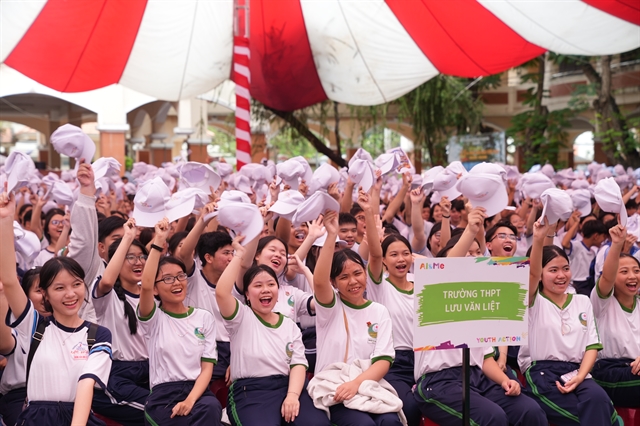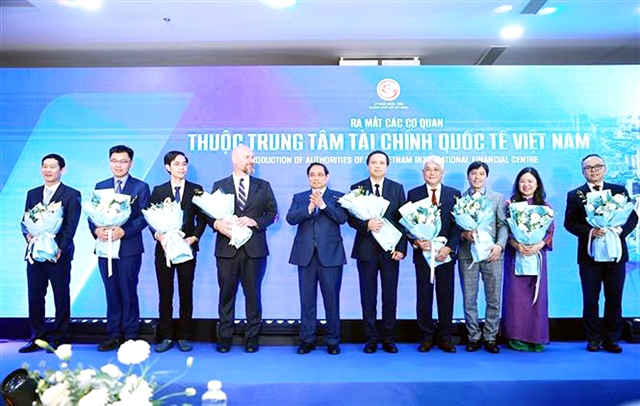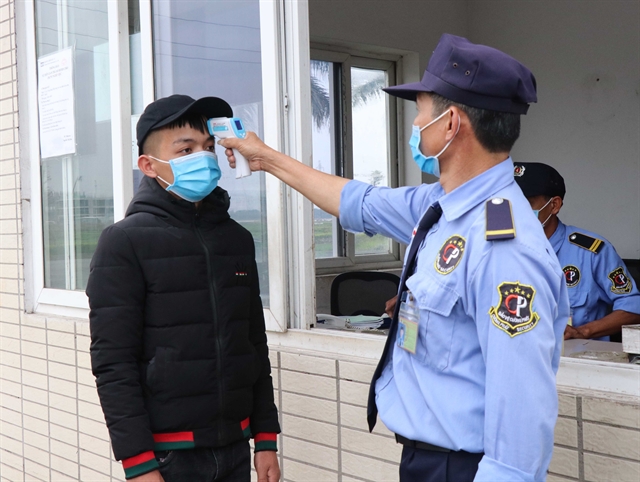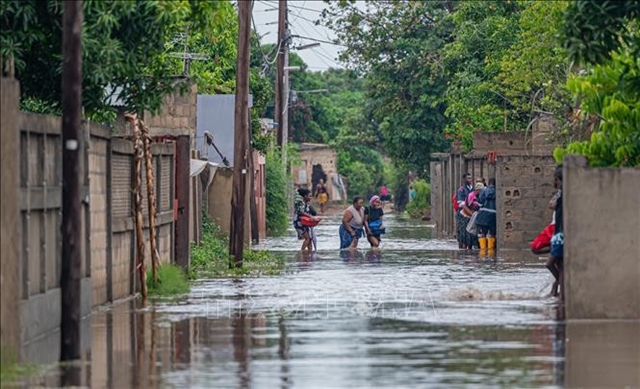 Society
Society


|
| A worker in Bắc Ninh has his body temperature checked before entering the factory. — VNA/VNS Photo |
HÀ NỘI — Inspections conducted by the Ministry of Health at more than 200 factories and companies showed the limited capacity of some facilities in COVID-19 prevention and control work, said Deputy Minister of Health Đỗ Xuân Tuyên on Thursday.
Tuyên, who is deputy head of the National Steering Committee on COVID-19 Prevention and Control, chaired a teleconference with authorities and leaders of local health departments in all 63 cities and provinces nationwide. Businesses, manufacturing facilities and industrial parks were instructed on COVID-19 prevention and control.
According to the health ministry, only 5 to 10 per cent of businesses and factories updated their outbreak status on the COVID-19 safety map. Some localities have not prepared COVID-19 prevention plans at industrial parks and every factory.
Deputy Minister Tuyên asked enterprises which have not recorded COVID-19 cases to actively conduct inspections, set up response teams and ask workers to fill in health declarations.
“At least 20 per cent of labourers who have suspected symptoms must have health check-ups. Workers have to keep a safe distance from each other at the workplace and during lunch time,” he said.
Factories which reported positive cases must zone off, isolate, and thoroughly trace infections, minimising the number of infections spreading to the community. Daily buses carrying workers to the factories must have windows opened, reduce the number of people by half and be disinfected every day.
Localities which have positive cases in both community and factories need to take preventive measures at residential quarters and workplaces in order to prevent cross infection, he said.
The Deputy Minister noted that businesses and industrial parks must think about long-term plans in case the outbreak lasts a long time.
Putting F1 cases in quarantine at home should be considered if there are many F1 cases in one living area. Taking testing samples, medical supervision and domestic waste collection at home quarantine sites are conducted the same as centralised quarantine sites, he said.
Businesses must conduct testing on workers and resume operation at virus-free factories, he said.
Since the fourth wave of COVID-19 in Việt Nam, industrial parks in Bắc Ninh and Bắc Giang have become hot spots.
By 7pm yesterday, Bắc Giang has reported 1,564 community cases while the number of cases in Bắc Ninh continues to rise with 654 cases since April 27. Most of them are factory workers at local industrial parks.
The health ministry is asking localities to build COVID-19 safety protocols at industrial parks as clusters at factories are new in this wave. — VNS




